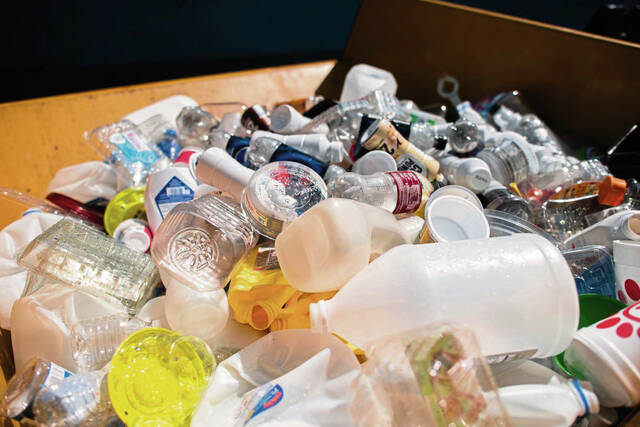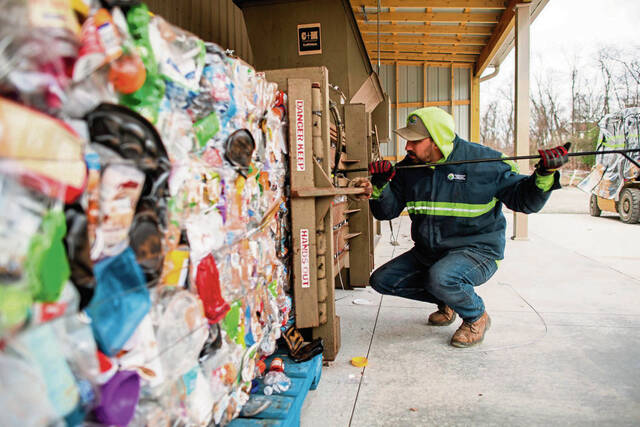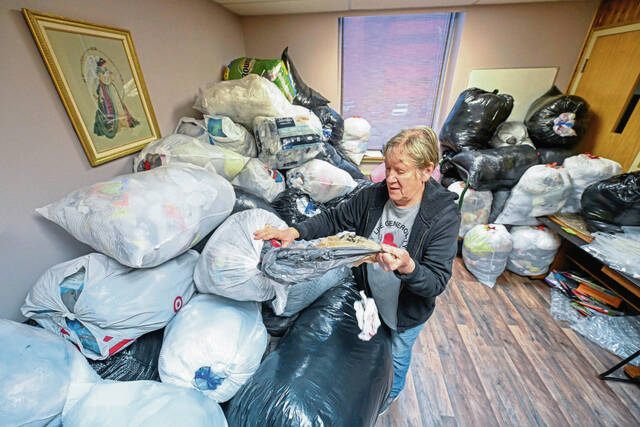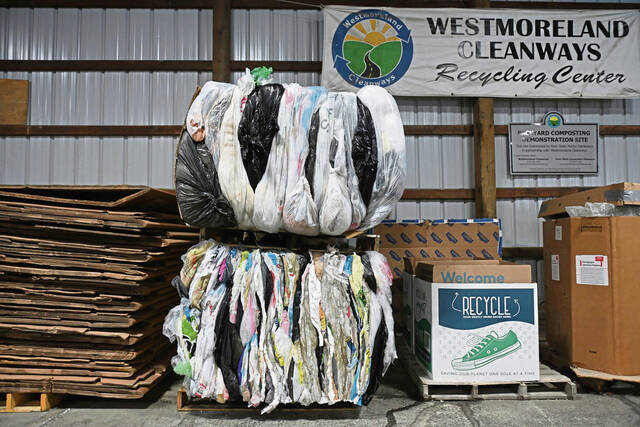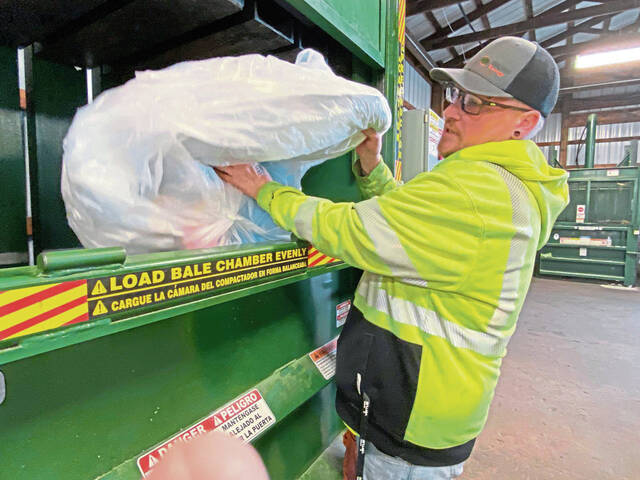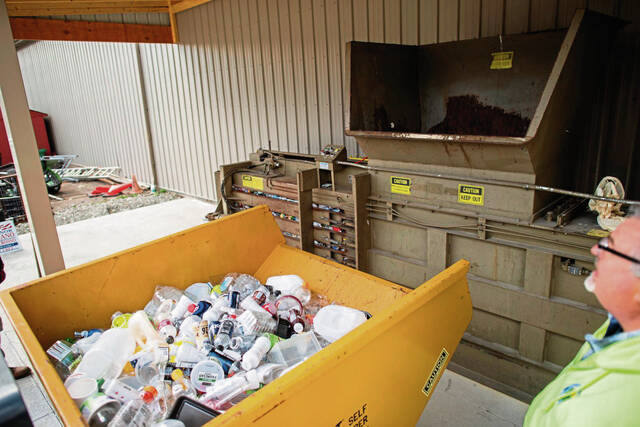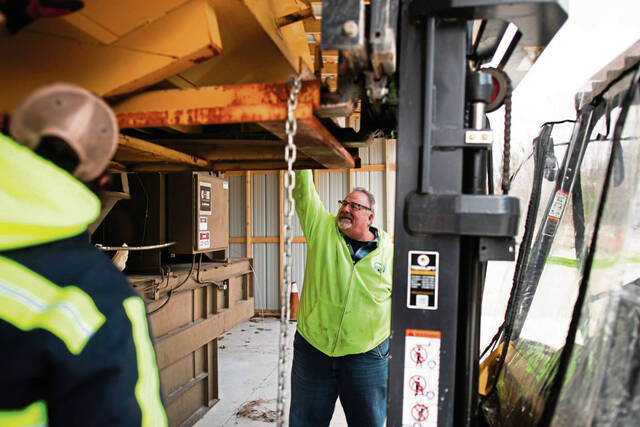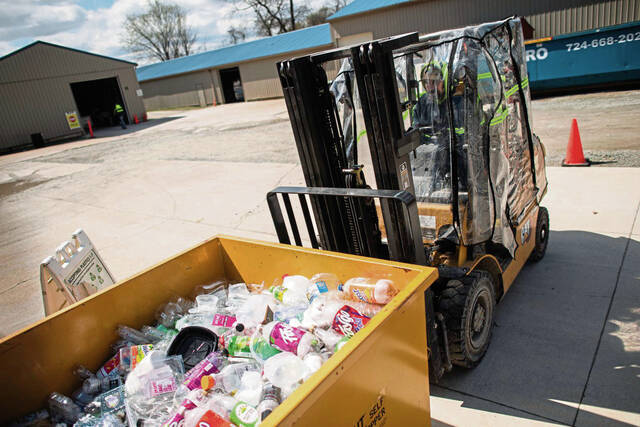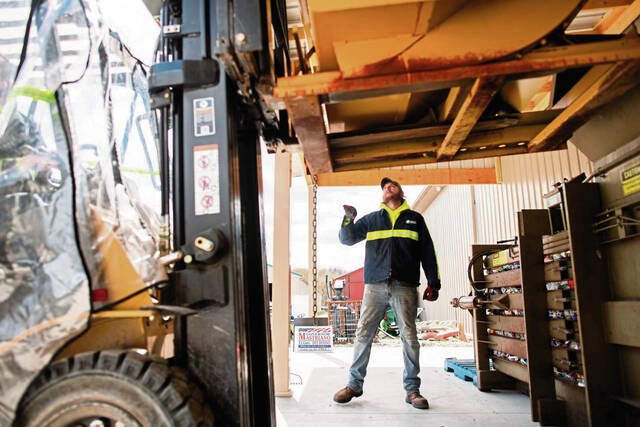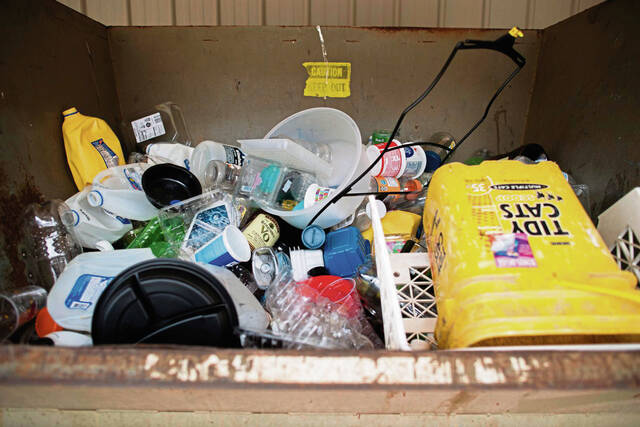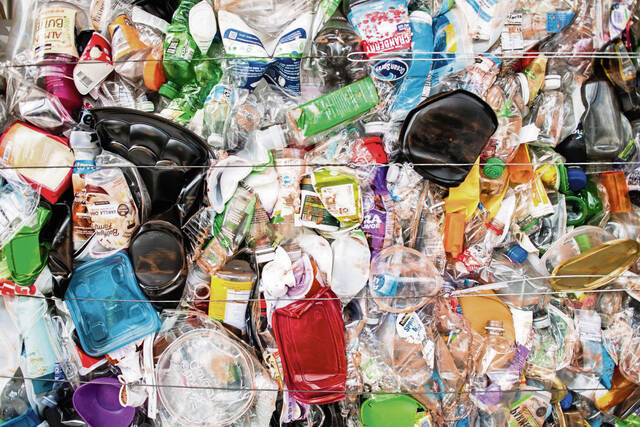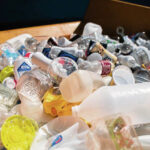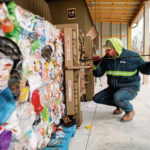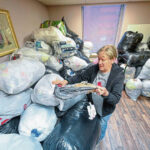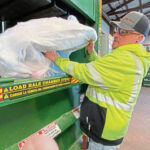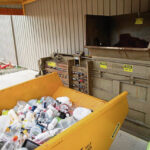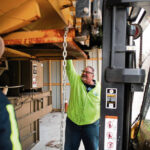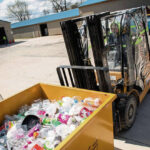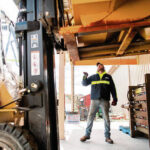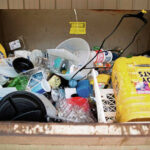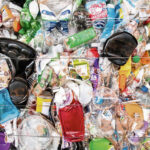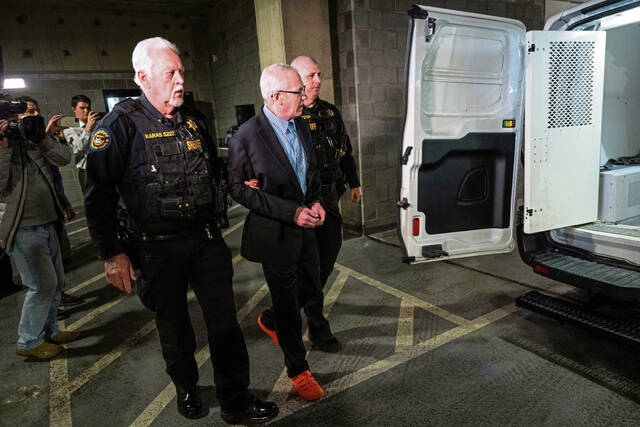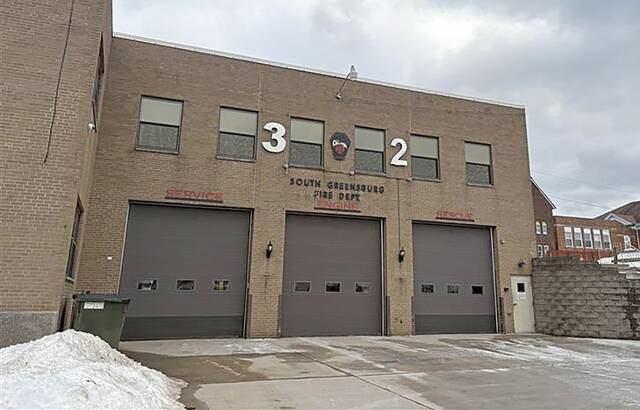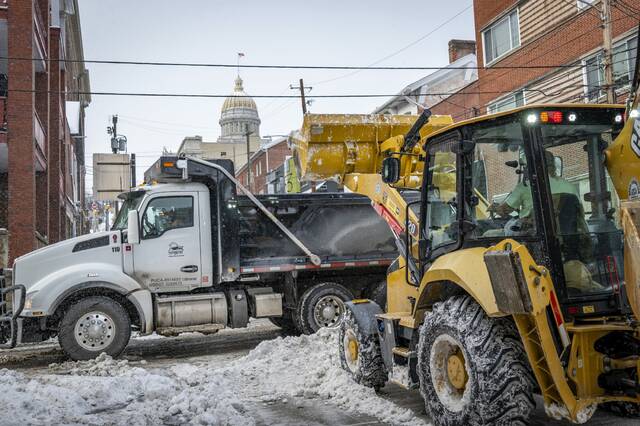Plastic waste is a weighty concern for members of Latrobe’s Trinity Evangelical Lutheran Church.
Since last May, the church has more than doubled its goal of recycling 1,000 pounds of shopping bags and similarly thin plastic items. More of the bags continue to accumulate weekly in a spare office room and in three large recycling bins, one of which awaits worshippers in the church narthex.
“We have older folks who show up for church, and they’ve got three grocery bags full of recycling that they’re bringing in,” said Jess Felici, one of the congregation’s pastors.
“We recycle a lot here,” said Jenny Obstarczyk of Latrobe, a former church secretary who helps oversee Trinity’s efforts to remove plastics and other materials from the waste stream.
Felici hopes her congregation’s recycling efforts will inspire others to follow suit.
There’s a long way to go, as just 21% of residential items that can be recycled in the U.S. are being reused, according to a 2024 report.
Annual U.S. generation of plastic waste is projected to grow from 73 million metric tons in 2019 to nearly 90 million by 2030 and more than 140 million by 2060, according to Statista.
More than a million tons of plastic debris enters U.S. rivers, creeks and sewer drains annually, the National Renewable Energy Laboratory reported last year.
“Plastic represents over 30% of all litter found in Pennsylvania,” said Shannon Reiter, executive director of Greensburg-based nonprofit Keep Pennsylvania Beautiful.
Based on a survey of state litter the organization conducted in 2019, she said, “That equates to 152.9 million pieces along our roadways, being washed down our storm drains, polluting our streams, making their way to our rivers and eventually out into our oceans.”
Globally, only about 9% of plastic waste is recycled, and a truckload of plastic enters the ocean every 60 seconds, or about 8 million pieces per day, according to CleanHub.
Divine inspiration
Trinity members were inspired to begin collecting polystyrene foam packaging for recycling after a presentation by Westmoreland Cleanways and Recycling, which accepts and condenses the material at its recycling center in Unity.
Trinity’s plastic recycling kicked into high gear after members learned of a challenge issued by Virginia-based Trex.
Trex is offering a bench made with recycled plastic to nonprofits that, in a 12-month span, can collect more than 1,000 pounds of the film-type plastic the company uses to produce its composite decking.
That plastic also is accepted at Westmoreland Cleanways, which obtained a machine from Trex to compress the material for shipping to the company.
“There are three of us who go there once a month,” Obstarczyk said of the congregation’s deliveries to the Unity recycling center.
Trex connection
Westmoreland Cleanways Executive Director Mike Skapura said his organization partnered with Trex nearly two years ago as it looked to expand the types of plastic it could accept.
Learning that some retailers no longer accept plastic shopping bags for recycling, Skapura said, “We tried to help pick up that slack so they don’t end up at the side of the road or in a landfill.”
Since then, he said, Trex has picked up three large shipments of plastic from Cleanways, the most recent weighing 19,000 pounds.
Trex uses equal amounts of recycled polyethene (PE) film and recycled wood dust to manufacture its decking, according to Emily Whitacre, a material coordinator with the company. The plastic film is melted down, mixed with the wood dust and extruded into a decking board.
“If a single 16-foot board weighs 40 pounds, you can estimate 20 pounds of that board is PE film,” Whitacre said.
Trex’s manufacturing process provides a ready market for PE plastic — including resealable food storage bags, bubble wrap, plastic wrap of product multi-packs and grocery, cereal, produce or dry cleaning bags.
Cleanways will own the compression machine Trex provided after making sufficient shipments of material to the company.
East Deer-based Pitt Penn Recycling sells plastic film to Trex and also accepts plastics in the No. 1 (clear water and soda pop bottles) and No. 2 (milk and laundry detergent jugs) categories from individuals, companies and some area municipalities.
The benches that are gifted through the Trex recycling challenge are made using such rigid recycled plastic materials as milk jugs and water bottles.
Patrick Sobotka, a buyer and office manager for Pitt Penn, agreed prices can fluctuate widely for the plastics his company sells and that eventually get remade into other products at various mills.
“We’re kind of the middle man in that process,” he said. “We have buyers who will call for a couple of different companies.”
Plastic prices can vary by as much as 100% from one month to the next, Sobotka indicated.
“There will be times where a lot of these mills are hungry for the material,” he said.
Though Pitt Penn makes money from the sales, Sobotka noted there are some offsetting labor costs for truck drivers and workers involved in sorting and baling the plastic items.
He estimated Pitt Penn collects and ships an average of 100 tons of plastics per month compared with 100 tons per week of a more prominent recyclable material: cardboard.
Cardboard tends to be easier to process than plastic containers, which must be separated by type and might need to be cleaned to remove residue of their contents.
For Westmoreland Cleanways, plastic is outpacing cardboard in the price it commands. Skapura said the nonprofit is getting between $80 and $100 per ton for a mixed bale of various types of plastic while cardboard last month was bringing in $60 per ton.
Per-ton cardboard prices also have fluctuated widely at Cleanways, ranging from $140 in April 2022 to just $20 in January 2023.
“A lot of places say it’s cheaper to make new plastic, but plastic is getting recycled all over the country,” Sobotka said. Still, “There’s just so much plastic in the world, we’re barely making a dent.”


